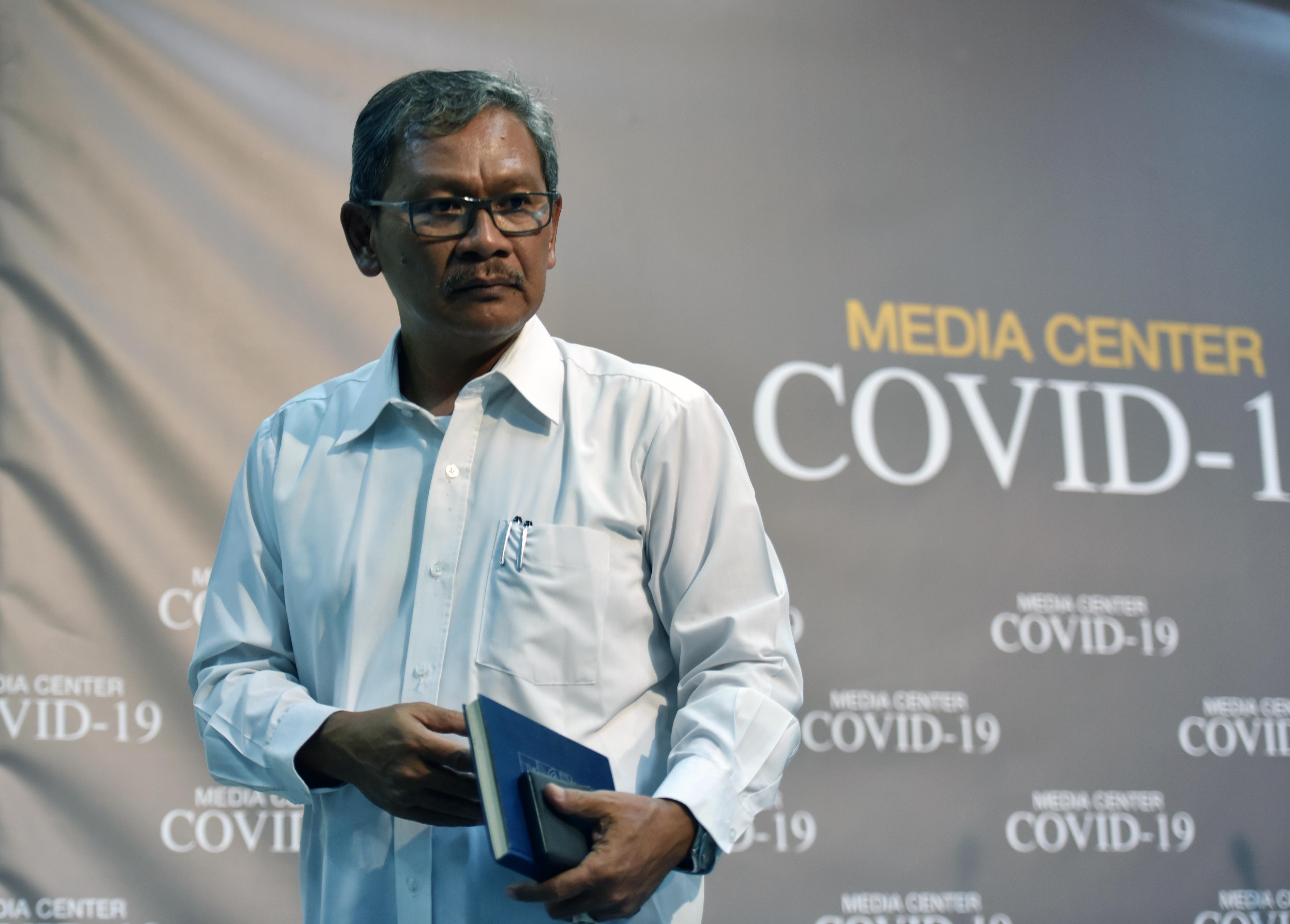Indonesia’s Coronavirus Countermeasures in Accordance with WHO’s Standards

Spokesperson for the handling of coronavirus in Indonesia, Achmad Yurianto in a press conference, at the Presidential Office, Jakarta (6/3). (Photo by: Jay/PR)
Coronavirus countermeasures taken by the Indonesian Government at airports are according to standards and manuals by the World Health Organization (WHO).
The statement was made by Secretary to the Directorate General of Disease Control and Prevention Ministry of Health Achmad Yurianto, as a spokesperson for the handling of coronavirus in Indonesia, in a press statement, at the Presidential Office, Jakarta, Friday (6/3).
“There are three carriers of a disease, be it inside or outside the country, namely human, goods, and transport,” he said.
Regarding coronavirus (Covid-19), the carrier is the human since the virus cannot be transmitted through goods or transport. Thus, to know if a person is infected with infectious diseases or not, health screening including body temperature check must be done.
Thermal scan, he added, is the early screening to detect someone’s body temperature. Normal human body temperature range is not above 37.5 (degrees Celsius).
“Therefore, person with a body temperature above 37.5 (degrees Celsius) must undergo specific examination,” he said adding that there is also quarantine mechanism at the airports and those with high body temperature may be denied entry into Indonesia and requested to return to their countries.
Nevertheless, on the second wave of the Covid-19 outbreak, some of coronavirus-infected passengers show no symptoms. For that reason, all travellers must fill in Health Alert Card since the officials cannot take mucus samples of all travellers and taken the samples to be examined using Implementation Completion and Result Report (ICR) method which takes 24 hours to be completed.
“We cannot take excessive measures as comply with the global standards,” he said adding that monitoring process will be conducted at two areas, quarantine at the country’s entrances and territory quarantine.
The spokesperson went on to say that a case is considered an Extraordinary Occurrence (KLB) if there is at least twofold increase in the case number for emerging disease, while KLB for new emerging diseases means infections that have recently appeared which have never appeared before. The KLB will be managed by local health authority because the announcement of KLB is made by regional heads.
In addition, plague or pandemic announcement must be issued by ministers, government officials at the same level as ministers or higher. The handling will be funded under Law Number 24 of 2007 on Disaster given plague or pandemic is considered a non-natural disaster. (TGH/EN)
Translated by : Rany Anjany
Reviewed by : Mia Medyana








